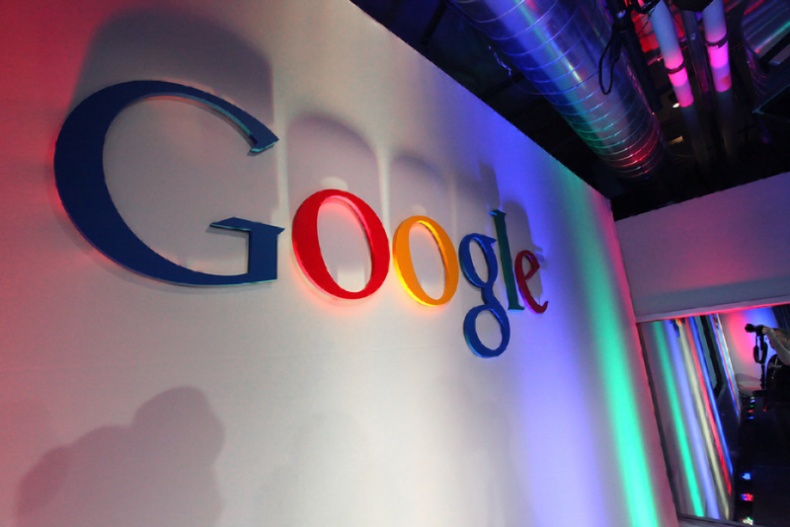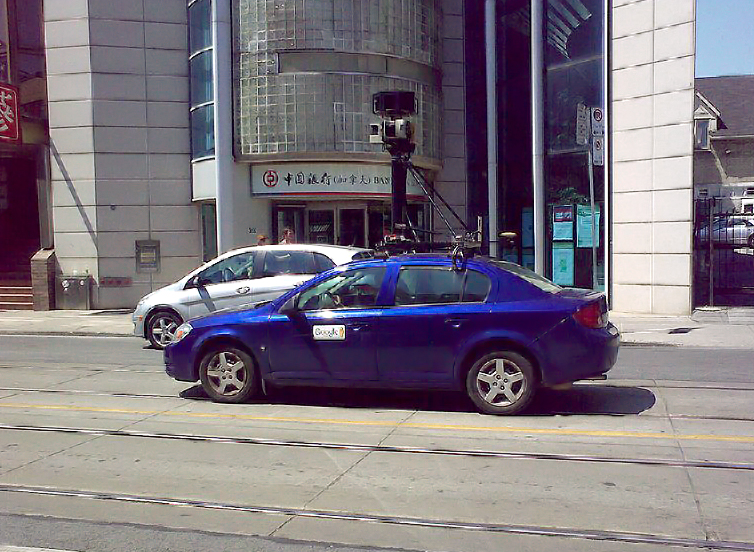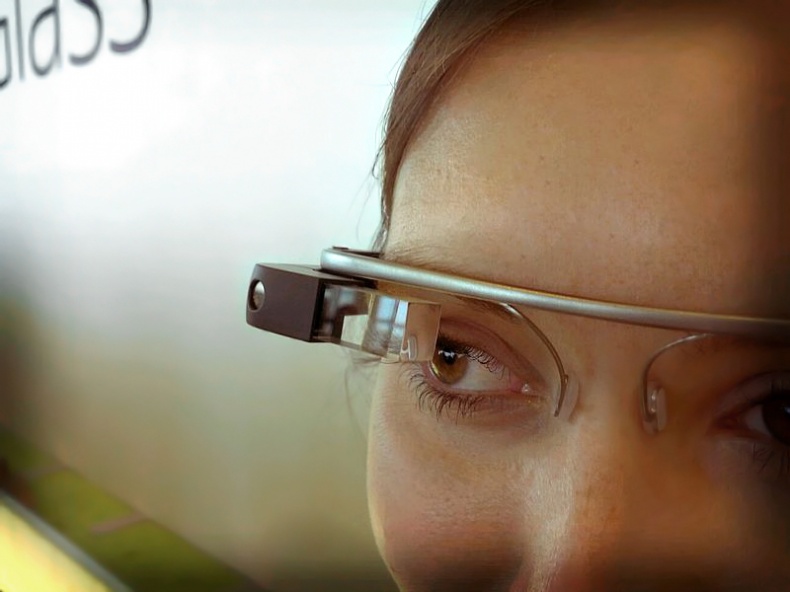
Google logo by Robert Scoble
Two friends from Stanford University probably had no idea that they were establishing what in 2012 would be one of the largest, if not the largest, multinational enterprise on Earth: Google. It all looks a bit like science fiction. The huge international giant that runs almost every software-related aspect of our lives resides in its headquarters named Googleplex in a sleepy American town, and it has begun to invade our privacy…
Let's get back to what exactly Google covers for us. Want to search for something? Google it! Honestly, I will never ask anybody a question without prior Googling again, simply because their answer is always the same — Google it! (If you really want to make a point about Googling to somebody, try the LetMeGoogleThatForYou page). Most of us use Gmail as our primary personal mail, Google Chrome as a default web browser, Google Translate (please never ever use it unless you really want to insult somebody by screwing up their language), Google Maps, and Google Earth for virtually every move we make (and also for aimless wandering through the streets without the need to leave our couch).
Since Google has bought YouTube, we turn to them for music and tons of other videos as well. (Imagine the world without YouTube — "Gagnam what?"). Most of us also use Google Cloud services. The former Google Docs has now changed to the cooler and more comprehensive Google Drive, very cleverly signalling the change in purpose. These are only a few major Google products I'm pretty sure every one of you uses on an everyday basis. This is only a mere glimpse of what Google has planned for us in the future. One of the possible game changers might be the revolutionary concept of Google Glasses.

YouTube logo by Rego Korosi
Let's take a step back and look at the enormous amount of personal data we entrust to Google. I probably wouldn't share so much with my best friend after five glasses of wine. What makes us trust Google? And more importantly, are we making the biggest mistake of our lives in trusting them with our online lives, blatantly ignoring the privacy issues? Or is the whole idea of Google abuse created by a few geeks with tinfoil hats, obsessing about conspiracies in the basements of their mothers' houses?
Google Street View Wi-Fi Snooping
Google Street View is a great thing. It helps a great deal to be able to see exactly how your destination looks (and don't get me started on the hours of fun searching for people in the strangest situations caught in the Street View pictures!) However, there's also a great deal of undesirable outcomes that resulted from Google Street view data collection. The Google Street View affair put Google privacy issues under the microscope for quite some time. For those who don't know how Google collected this vast collection of pictures forming Street View, basically a fleet of Google cars with cameras on top cruised around the countries of the world, Canada included, collecting the images of our cities, resulting in the virtual 3D map we all enjoy so much.
The gravest impact so far was the collection of browsing data from unencrypted Wi-Fi networks that happened, as Google claims, "by mistake" along with the Street View images collection process. Google claimed that its Street View cars, which take 360-degree photographs for use in Google Maps, have been collecting the data from unprotected Wi-Fi networks since 2007. The data leek was discovered thanks to the German audit authority in 2010. (Thank you, German discipline, organization, and latent mistrust.) How does Google profit from such data? Google says that this was purely for the purposes related to their own applications; however, with Google already knowing our IP addresses from our daily usage of their software, now they can pinpoint the precise location of users as well.

Google Street View Car in Chinatown Toronto by Wikimedia Commons
Useful or not, this constitutes an outrageous breach of privacy. Canada's privacy commissioner, Jennifer Stoddart, commented on the leak: "I would consider the investigation closed and the matter resolved as long as Google revises its internal procedures to improve the privacy training it provides all its employees and deletes or segregates any data relating to Canadian citizens." Her report is a very revealing read:
Our investigation also learned that in the code design-procedure document for the particular code later to be used for the collection of Wi-Fi signals, the engineer did identify one or more privacy concerns about the information collection, but viewed them as only superficial. These relate to the fact that Google could obtain sufficient data to precisely triangulate a user's position at a given time.
The data collected contained whole e-mail addresses, URLs, and passwords transmitted over the unprotected Wi-Fi networks at the time when Google Street View cars passed.
The aftermath of the situation from 2010 struck the UK two years after all the data from the Street View Wi-Fi collection were supposed to be erased. Google's privacy counsellor, Peter Fleischer, admitted:
Google has recently confirmed that it still has in its possession a small portion of payload data collected by our Street View vehicles in the U.K.
Google also uncovered intact data from other (mostly European) countries. (Can we expect such a gift from Google in Canada as well?)
Google and Political Scene
Google, as one of the most influential non-state players on the international scene, is in general regarded quite positively. We have to admit that although the privacy policy of Google itself is not all that comprehensive and transparent, their interferences in international politics are quite positive. The major one is the stand against Chinese censorship in 2010, when Google decided to stop filtering results and was hailed all over the democratic world as an immense success. Also Amnesty International's UK director, Kate Allen, said for The Guardian: Amnesty has consistently called on companies operating in China to stop collaborating with the Chinese authorities' censorship requirements, and to respect the right to freedom of expression for web users in China. We have repeatedly urged Google and other companies to abide by their own stated principles and provide unbiased, accurate and free access to information." Google moved their servers to Hong Kong in January 2010, shortly after this incident.
Currently, Google's dispute over the censorship of its search results started to move again, but in the right direction (for now). Google added a software twist to its search page that warns users when they type a search term whose results are likely to be blocked in China. The Chinese users experience a few minutes' connection disruption every time they try searching one of the "forbidden words." With Google's help, they might be able to avoid this.

Office roofgarden Beijing by Andrew Eland
Google also supports a free and open Internet. The latest project the software giant decided to pursue is called freeandopen and promotes the democratic aspect of the Internet. (Sympathetic? Yes. Naïve? Very. Its impact? Close to zero.) These attempts of Google's to focus on free Internet would be even more to the point if Google cleared its name in relation to its basic privacy policy breaches.
Google Search Integrity Losing to Ads
I am a big fan of Google search. Don't get me wrong. At least I used to be. However, lately it's easier and easier to manipulate, rig, or simply buy your place under the Google sun. The concept of fairness is simply lost. When searching for something, it seems as if Google wanted to keep you from finding anything relevant, and in this situation, many users simply succumb to the AdWords advertisements in hopes that maybe that could be the place to find something that will finally put them out of their misery and suffering with the organic results. AdWords' problematic nature goes far beyond simple search degradation. The major problem is how Google finds relevant advertisements for us. Cookies Google was placing on our hard drives in 2007, had according to Google Watch, a lifespan over 32 years and incorporated a unique ID that enabled the creation of a user data log.
Steve Ballmer believes the processing of email content by Gmail breaches a privacy policy more that it acknowledges. Google claims there are no privacy issues and that mail sent to or from Gmail is never read by a human being other than the account holder, and content that is read by computers is only used to improve the relevance of advertisements.
Another one of the issues associated with Google that I observed is that it's almost impossible for a new site to rank highly — sometimes even if the site is good, since Google searches are based on PageRank algorithms. Another problem is the internal conflict within Google itself, when the search engine naturally favours the sites Google uses.
Google's Future Plan Is Called Google Glass
Google's Glass vision has recently been released in the form of a very appealing video that shows how our lives could look like if we owned the glasses with Google software built inside them. The dream of every interface designer — the nightmare for privacy issues analysts. Vastly advanced artificial intelligence to fuel searches, wise mapping systems to take us from point A to point B, and clever cloud-syncing apps that allow us to collaborate on projects from around the globe. You could do everything that you're currently doing with your smartphone, just more comfortably — all in front of your very own eyes (literally). Google never had to be pretty. But it's always been smart. (Minority Report doesn't seem that distant now, does it?)
Co.Design's Mark Wilson provided a very intriguing analysis of what Google needs to do before they can even think about introducing Glass on the market.

Google Glass detail by Wikimedia Commons
First of all, Google has to work really hard to make the glasses appealing for crowds. I don't know about you, but I'm not that fond of the idea that I'll be wearing those ridiculous-looking glasses on my nose the whole day. There's a reason why people want to buy Armani glasses at the optometrist's. They are both comfortable and very good-looking. I can't judge the comfortability, but the looks are not up to par.
The other issue is the implied intrusiveness of such an interface. I don't care if the notification flashes on my smartphone somewhere deep in my handbag, but if I had to look at all of them in my face all the time, I probably wouldn't be a happy user. The balance between necessary and annoying is very thin and I agree that this is going to be one of the biggest challenges for Google.
The last of the major challenges is feedback collection. The approach can result either in the very unfortunate mixup of all survey results or in the better case, Google will keep its structural integrity and will be able to extrapolate the most important features expected by the user without compromising the final product.
The idea of virtual glasses that will take care of most of our daily troubles for us is fascinating and intriguing in many ways, but we have to ask ourselves whether such an interface won't dehumanize us even more than we already are today (as cliché as that sounds). Virtual help can bring a huge array of useful features; however, it also bears the burden of not having to face other people in person so often. Or does it create more time for us to spend with our families?
What's your opinion on the issues of personal data? I'd love to hear it!







